
(+)
Dr. Hosahalli Ramaswamy is a professor of food processing engineering and holds BS and MS degrees from India, and MS and PhD from Canada. He is a Professor of Food Processing at McGill University, Canada. During the 35 years at McGill, he has established a very strong research program in thermal and non-thermal processing of foods (conventional canning, agitation processing, microwave processing, aseptic processing, ohmic heating, high pressure processing, pulsed light), computer simulation and modeling, and use of artificial neural network for process calculation, characterization, kinetics, optimization and control. He has served CIFST as President and Editor of Journal of Food Engineering. He has won many international awards and is a Fellow of several professional societies. His highest awards are the Fellow of Royal Society of Canada (RSC, Canada), Life Time Achievement Award of the International Association of Food Engineers (ICEF), Fellow Canadian Society of Bio-Engineering (CSBE, Canada), Fellow of the Association of Food Science Technology (India), Academy of Agricultural Scientists (India), Fellow of the International Union of Food Scientists and Technologists (IUFoST), Fellow of Institute of Food Technologists (IFT, USA).. and a dozen more. He has published more than 430 manuscripts in peer reviewed journals, presented over 500 papers and graduated 90+ graduate students and managed millions of dollars in research funding.
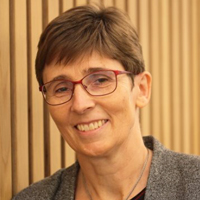
(+)
Charlotte Jacobsen, Ph.D., is professor in Bioactives – Analysis and Application. She is internationally renowned for her research in lipid oxidation of omega-3 rich foods and she has received several awards including the Danish Danisco price 2003, the French La Médaille Chevreul 2010, the German DGF Normann Medaille 2020, the Stephen S. Chang award (2021), AOCS Fellow (2022), European Lipid Science Technology award (2023), Knights Cross of the Dannebrog Order. Her publication list includes more than 290 peer-reviewed manuscripts and book chapters.
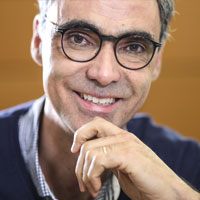
(+)
António Augusto Martins de Oliveira Soares Vicente was born in Porto, 52 years ago. He graduated in Food Engineering from the School of Biotechnology of the Portuguese Catholic University in 1994, received his PhD in 1998 and did his Habilitation in 2010 in Chemical and Biological Engineering from the University of Minho. Today he is Professor in the Department of Biological Engineering, which he directed prior to his current appointments as vice-Dean of the School of Engineering and Director of the Doctoral College of that University. António Vicente is a Senior Member and Specialist in Food Engineering by the Portuguese Engineers Association, where he is currently deputy coordinator of the Specialization Committee in Food Engineering. He is also a member of the International Society of Food Engineering (USA). As a researcher, he is part of the Center for Biological Engineering and of the LABBELS Associate Laboratory, and has dedicated his work to the development of micro and nanotechnological systems for application in the Agro-food sector, to the evaluation of their behavior in dynamic in vitro digestion systems, to the study of the influence of the application of electric fields in cells and biomolecules to change their functionality and the development of new bioreactors and their application in bioprocesses. He has published more than 350 articles in international ISI WOS journals and more than 30 chapters in books of international circulation. He is the author of more than 400 papers presented in congresses and 5 patents and editor of 5 scientific books. He has more than 13,000 citations and about 120,000 readings at the Research Gate, yielding an h-index of 74. He is member of the Editorial Advisory Board of the Journal of Agricultural and Food Chemistry. He has been a member of the Jury of the National Agricultural Prize since its institution in 2012. He won the Food and Nutrition Awards in 2015 and 2017 in the Research and Development category. In the last five years (2018, 2019, 2020, 2021 and 2022) he was distinguished as Highly Cited Researcher by Clarivate Analytics and in the last three years (2020, 2021 e 2022) he has integrated the list of the top 2 % most cited researchers according to the list published by Stanford University. In 2021 he was awarded the Scientific Merit Award from the University of Minho and the Diploma of Scientific Merit from the School of Engineering of the University of Minho.
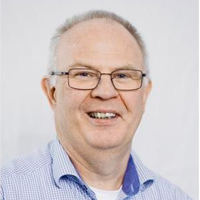
(+)
Professor Poul Erik Jensen is a professor in plant-based food biochemistry at Dept. of Food Science, University of Copenhagen, Denmark, since 2019. His past works has focused on plant photosynthesis, membrane proteins, synthetic biology and metabolic engineering in phototrophic organisms. Current work involves understanding structure and function of plant seed proteins for foods using extraction, use of enzymes and fermentation. He is also interested in microalgae proteins for food as well as metabolic engineering of microalgae for production of amino acids, phenylpropanoids and pigments. At the Food Science department, he leads the group ‘Plant Foods and Biochemistry’ consisting of 4 PIs with research activities within proteomics, protein digestibility, plant seed processing and antinutrients.
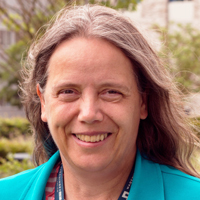
(+)
Karin Schroën is a food and membrane technologist with > 30 years of experience in academia. In September 2012, Karin Schroën was appointed as full professor in food micro technology at Wageningen University, the Netherlands. In 2019, she became chair holder in Membrane Processes for Food, at the University of Twente. Further, she is the scientific director of graduate school VLAG, and the dean of technical sciences at Wageningen University, and takes part in various national and international strategy committees. Currently, she heads research groups totaling approximately 20 PhD candidates and post-docs, that take the micrometer scale as a starting point of investigation. Based on insights obtained at that scale, novel mild process technology is designed, typically for emulsification, foaming, and encapsulation amongst others to create sustainable processes, and foods with health effects. She has published 275 publications, 15 book chapters, and 7 patents. She is frequently invited as a keynote speaker for conferences, workshops, etc.

(+)
Andreas Schieber graduated in Food Chemistry from the University of Stuttgart, Germany. He received his doctoral degree in 1996 and his venia legendi (Chemistry and Technology of Foods) in 2004 from the University of Hohenheim. From 2008 to 2011 he was a Professor and Canada Research Chair in Functional Foods and Nutraceuticals at the University of Alberta, Edmonton, Canada. He has been a Full Professor at the University of Bonn since 2011, where he holds the Chair of Molecular Food Technology. His research interests center around secondary plant metabolites, in particular phenolic compounds and carotenoids, valorization of side streams of food processing, food authentication, and the effects of processing on food ingredients. He has published more than 270 original contributions, reviews, editorials and book chapters. He was an Associate Editor of Food Research International from 2013 to 2017 and is a member of the Editorial Advisory Board of Journal of Agricultural and Food Chemistry, the Editorial Board of Current Opinion in Food Science, and the Advisory Board of Sustainable Food Technology. From 2016 to 2022, he served as the President of the World Congress on Polyphenols Applications series. He is the recipient of several national and international research awards and received the 2020 Teaching Award of the University of Bonn for his outstanding contributions to teaching.
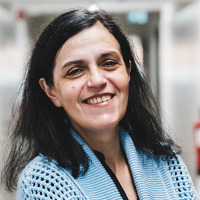
(+)
Cristina L.M. Silva is an Associate Prof. at Portuguese Catholic University – College of Biotechnology (ESB). She is Chem. Eng. and PhD in Biotechnology and Food Engineering. She is the leader of the Laboratory of Food Processing Engineering at the CBQF research centre. Her research is on the quality and safety of processed foods and by-products, emphasizing mathematical modelling and optimization of the processes. Her research outcomes are focused on: (i) design and optimization of food process conditions; (ii) predictive microbiology as a tool to optimize food processes; (iii) evaluation of food quality changes due to conventional and novel processing; (iv) evaluation of food quality and safety changes during storage; and (v) formulation of new foods. Her publications have a SCOPUS® h of 40. Cristina Silva coordinated several national and international projects and was president of the association ISEKI-Food. She is currently a member of the advisory committee of the ISEKI-Food Association, chair of the WG1.2 Education Committee of IUFoST - International Union of Food Science and Technology, and at ESB coordinates the Master degree on Food Engineering. Cristina is also an associate editor of the Journal of Food Processing Engineering.
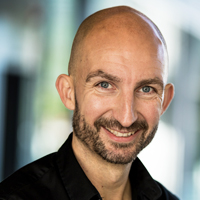
(+)
Kjeld van Bommel obtained his PhD in Organic Chemistry from the University of Twente, the Netherlands in 2000. After a postdoc in Japan, he returned to the Netherlands to work at Biomade Technology where he investigated gel formulations for application in pharma. He joined TNO in 2006, where he initially worked on the topics of encapsulation and controlled release. In 2010, he moved to the TNO Department Equipment for Additive Manufacturing where he helped start up the research on 3D Food and later Pharma printing, topics on which he has been active for well over 10 years now.

(+)
Trained as a chemical engineer with a PhD in chemistry, Dr. Anne Louise Dannesboe Nielsen has been working with food research and innovation for the past more than 10 years, securing that the latest innovations are brought into action at the industry. Currently, Dr. Nielsen is heading the food technology center at DTI, where 30 food innovators everyday strive to develop the food of tomorrow.

(+)
Clara Talens is a senior researcher at AZTI, scientific and technological centre based in Bilbao, Spain. She holds a degree in Agricultural Engineering, a Master's in Biosystems Engineering from UCD Dublin, and a PhD in Food Science and Technology from UPV Valencia. With over 15 years of experience, she has led both publicly and privately funded research and innovation projects, securing R&D funding for SMEs, startups, and food businesses. Her work spans the development of healthy and sustainable ingredients, drying technologies, alternative proteins, and consumer-oriented product development from formulation through to industrial process design and scale-up. Her research primarily focuses on the modelling and optimization of food processing and formulation techniques. This work aims to explore the impact of ingredient replacement across various food matrices and to enhance food texture, sensory properties, and nutritional content, all within the framework of sustainable nutrition. Clara has co-authored numerous scientific articles and regularly presents her findings at international conferences.
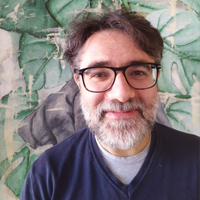
(+)
Antonio Derossi is Associate Professor in Food Science and Technology at University of Foggia and is conducting research activities in emerging technologies, food microstructure characterization, 3D food printing, shelf-life modeling, and strategies for increase the sustainability of food sector. He earned his BA and his PhD from University of Foggia, Italy, and he was visiting PhD student and visiting Post-doc at University of Davis, CA. Currently, Antonio Derossi teaches Processing for Food Formulation at University of Foggia and Processing for Local Food Products at University of Roma Tre. He is author and co-author of 90 scientific publications, has presented the main results of his research activities to 20 International Congress as invited speaker, chair-person and co-chair. He served as external examiner of EU projects for EIT Food and for the Chilean National Commission for Scientific and Technological Research (CONICYT). He is associate Editor of the journal Frontiers – Food Safety and Quality Control - and is member of the Editorial board of Future Foods and Current Research in Food Science. He published as co-author 9 book’s chapter and was co-inventor of four industrial patents.

(+)
Prof. KSMS Raghavarao is basically a Chemical Engineer specialized in Food Engineering and Biotechnology. After superannuation, as the Director of CSIR-CFTRI, he has joined recently IIT Tirupati as Professor of Chemical Engineering. Dr. Raghavarao has over 30 years of experience with right combination of Applied and Basic research. Out of 30 significant achievements, 15 were transferred to Industry. Dr. Raghavarao has guided 25 students/fellow scientists for a Ph.D. in Food Engineering/ Biotechnology and is currently guiding 8 at IIT Tirupati. Recently, in June 2023, in Nantes, France, he received the International Association for Engineering and Food (IAEF) Lifetime Achievement Award. He has been the recipient of prestigious NASI-Reliance and VASVIK awards for applied research. He has received prestigious National Fellowships of Academies (FNAE, FASc, FNAAS, FAFST, FAPASc, FIE). He has over 160 publications (with an ‘h’ index of 54) and citations of over 12,500, about 28 International patents and 55 Indian patents.
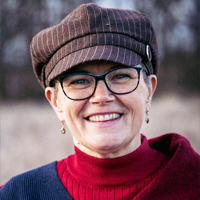
(+)
Trine Kastrup Dalsgaard is Professor at Department of Food Science at Aarhus University. Her science group focus on sustainable food production through circular bioeconomy, biorefinery and cascade processing with a focus on obtaining and characterizing alternative proteins and side-streams e.g. natural colorants, lipids, carbohydrate, vitamins, and bioactive compounds and their chemistry and interactions during processing. The characterization is preformed by highly advanced mass spectrometry with proteomics/peptidomics and metabolomics platforms as well as quantitative MS-analysis. Spectroscopy and biophysics are also used as tools to characterize foods and for optimization of processing.
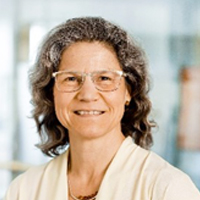
(+)
Vibeke Orlien is associate professor in food chemistry, and she is Deputy Head and Deputy Manager at the section Food Design and Consumer Behavior. Her research concerns food technologies and processing, and the effect on food components and their properties, especially protein modification and stability in relation to functionality and product development. Focus is on how processing methods and non-thermal technologies affect molecules in relation to structural changes and physicochemical reactions from molecular size to macroscopic levels based on molecular and mechanistic understanding to support practical functional food design. In addition, to assess the nutritional benefits of processing of food materials, thus the assessment of the in vitro protein digestibility (IVPD) of raw materials and plant-based products after processing, e.g. extrusion, high pressure, and fermentation, and relationship with protein functionality.

(+)
Peter Nieuwkerk is Group Managing Director and owner of the Budelpack Group, an international co-packing company working for multinationals like Mars-Wrigley, Kraft Heinz and Nestlé. In 2019, Peter had a dream: he wanted to bring back the joy of consuming fresh food to adults and children who suffer from dysphagia. That is why he founded Gastronology. Gastronology is one of world’s first companies to have started with large-scale production of 3D printed food, which has been made available under the brand name ‘Dysphalicious’. Gastronology develops and produces food products based on the technique of 3D food printing : 1. creation of fresh and refined 3D food recipes; 2. design of fun and functional 3D product forms; 3. optimization of product designs for 3D printing. The 3D printed food range currently consists of eight potato and vegetable products and is especially developed for people with chewing and swallowing problems (dysphagia). It will be sold in a pilot market from April through December 2024 after which a national and international roll-out will follow.

(+)
Dr. Rossella Caporizzi is a researcher at the University of Foggia, Italy. She completed her PhD in May 2018 in “Management of innovation in the agricultural and food systems of the Mediterranean Region” from the same University. She broadened her research interests while serving as a visiting PhD student at the BOKU University in Vienna and as a visiting academic at the University of Guelph in Canada. She is currently studying new technological approaches for the development of personalized foods, with a focus on Additive Manufacturing Technologies, food structure, and the healthy and sensorial properties of foods. She is also exploring innovative ways to extract value from food by-products using a biotechnological approach. Her teaching activities span technological aspects of cereal-based foods, novel foods products and innovative ingredients. She is Co-Guest Editor for the Journal Future Foods and she is Editorial Board Member for the journal ‘Comprehensive Reviews in Food Science and Food Safety’. She has published several peer-reviewed papers in international journals. Furthermore, she has contributed as a speaker to various national and international conferences and as a lecturer for other Universities.